Accreditations
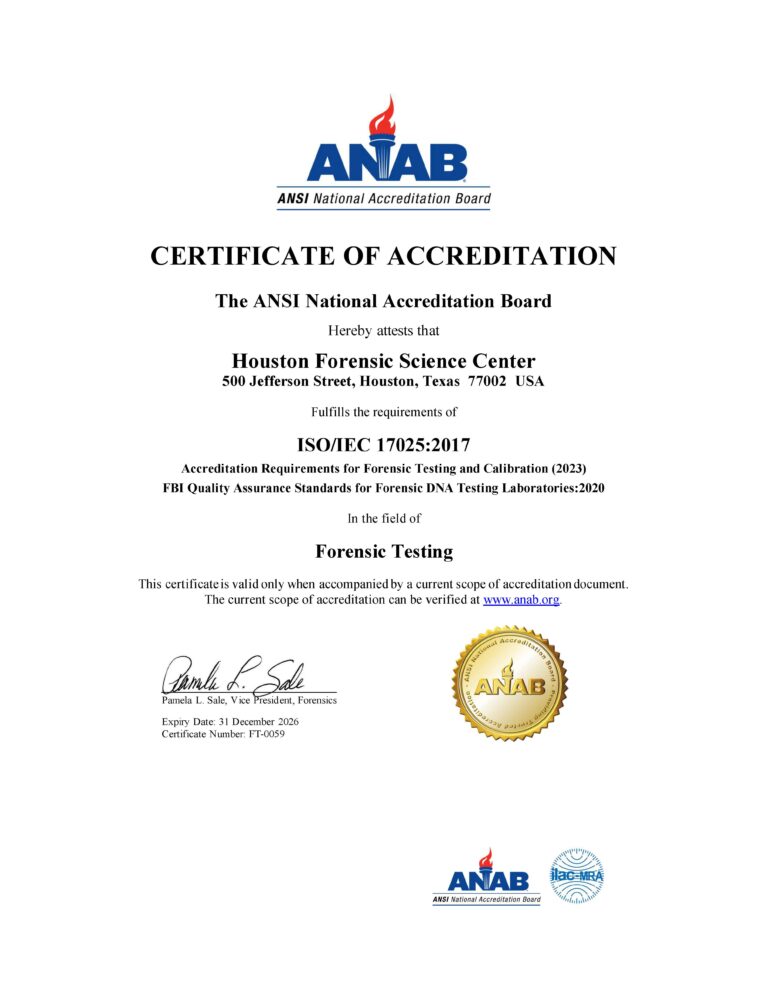
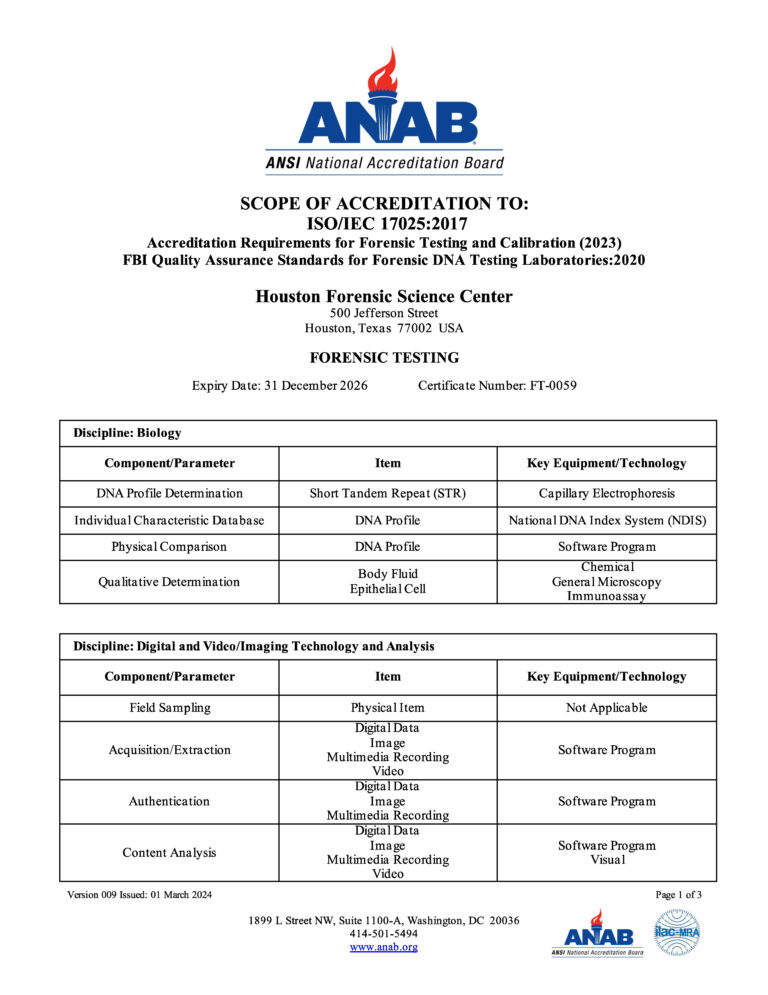
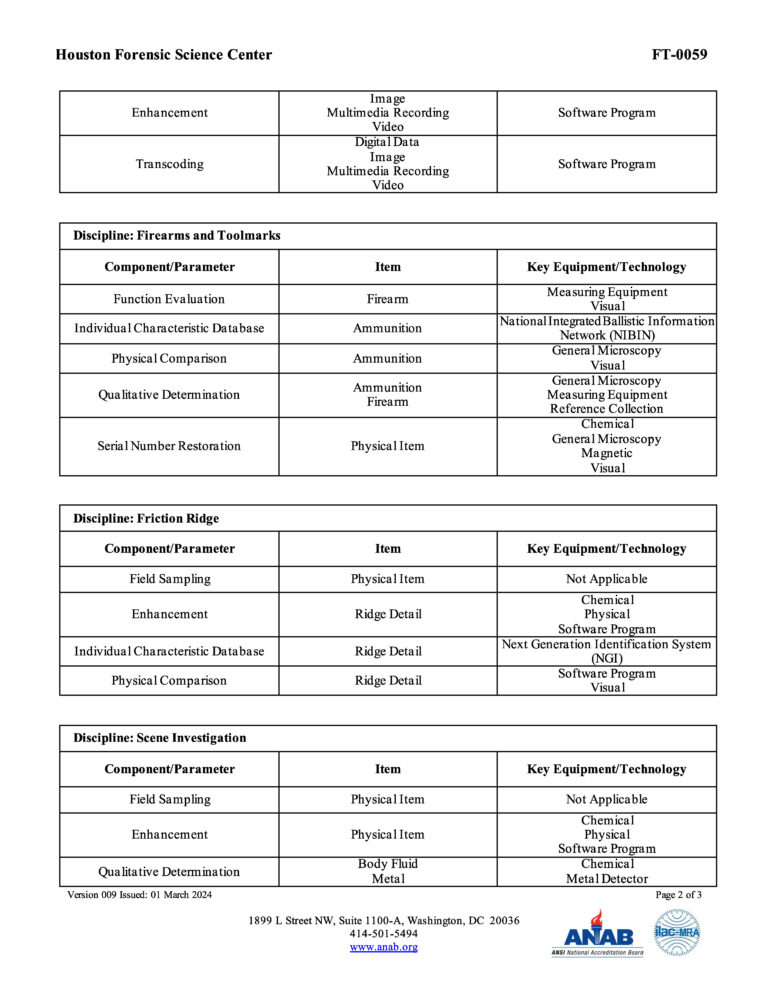
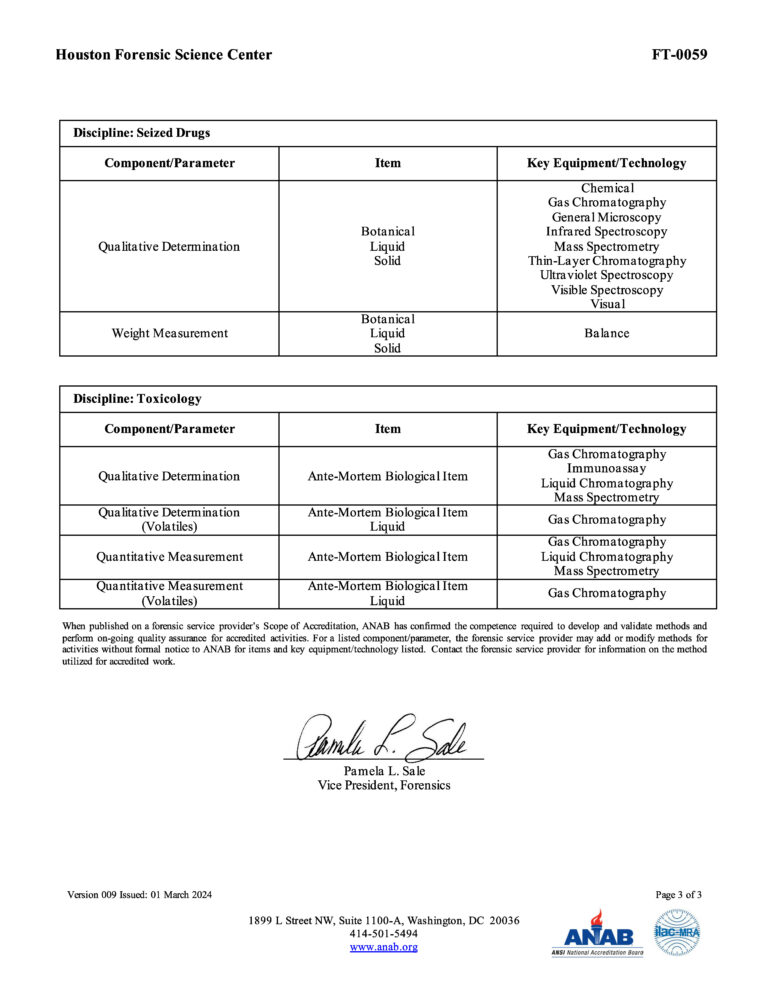
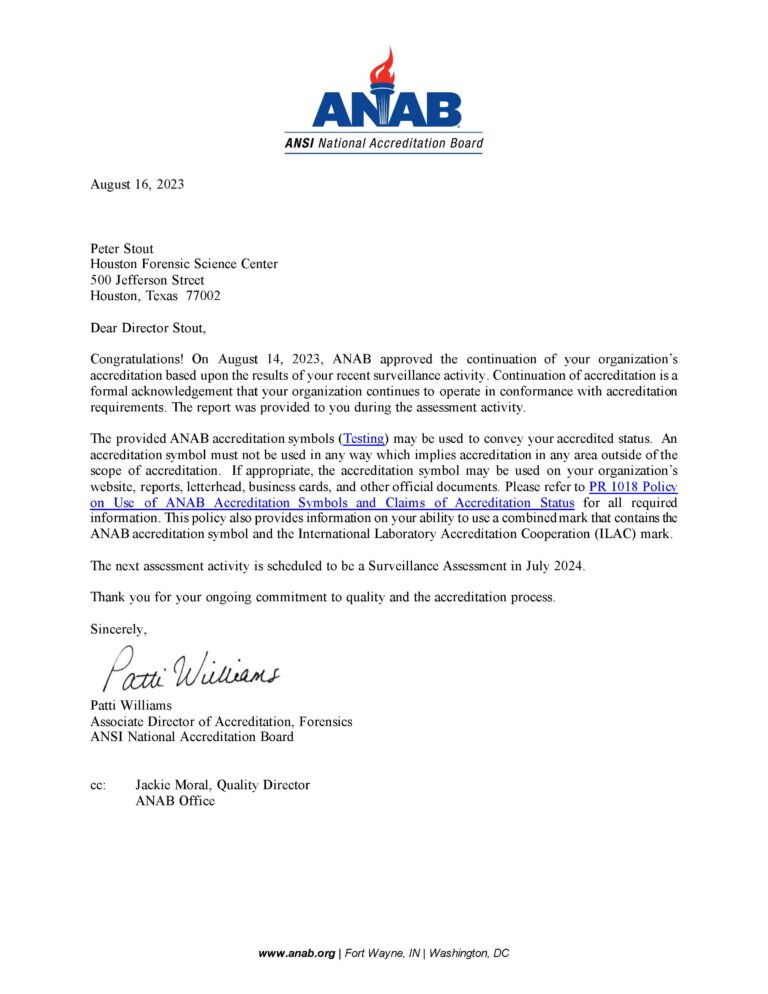
ISO/IEC
All HFSC disciplines, including the crime scene unit, are accredited to ISO/IEC 17025:2017 requirements for forensic testing laboratories. The American National Standards Institute (ANSI) National Accreditation Board (ANAB) awarded the accreditation. ANAB has been accrediting forensic laboratories to the ISO/IEC 17025 level longer than any other U.S. organization.
ISO 17025 is the global standard for testing and calibration laboratories. Laboratories with this accreditation are recognized for specific competencies. The labs must adhere to standards for continual management and quality improvement, are required to submit an annual audit to the accrediting body and are subject to unannounced inspections.
HFSC also maintains accreditation with the Texas Forensic Science Commission. Please see the letter.
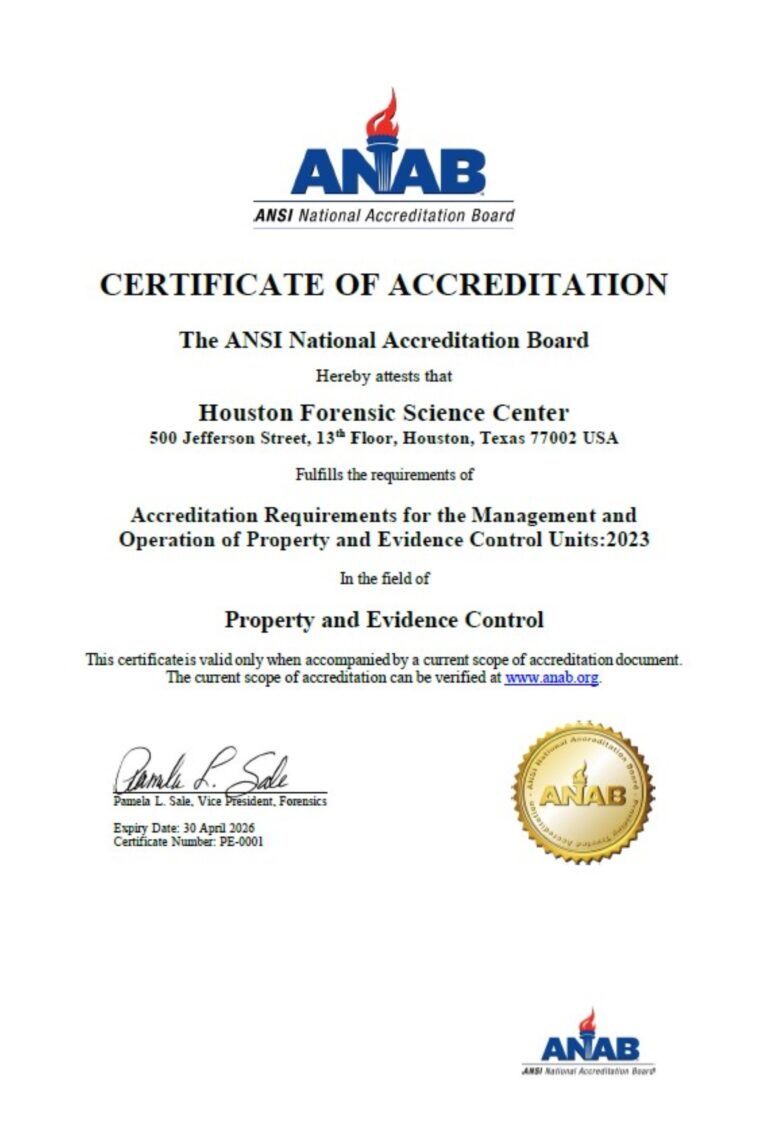
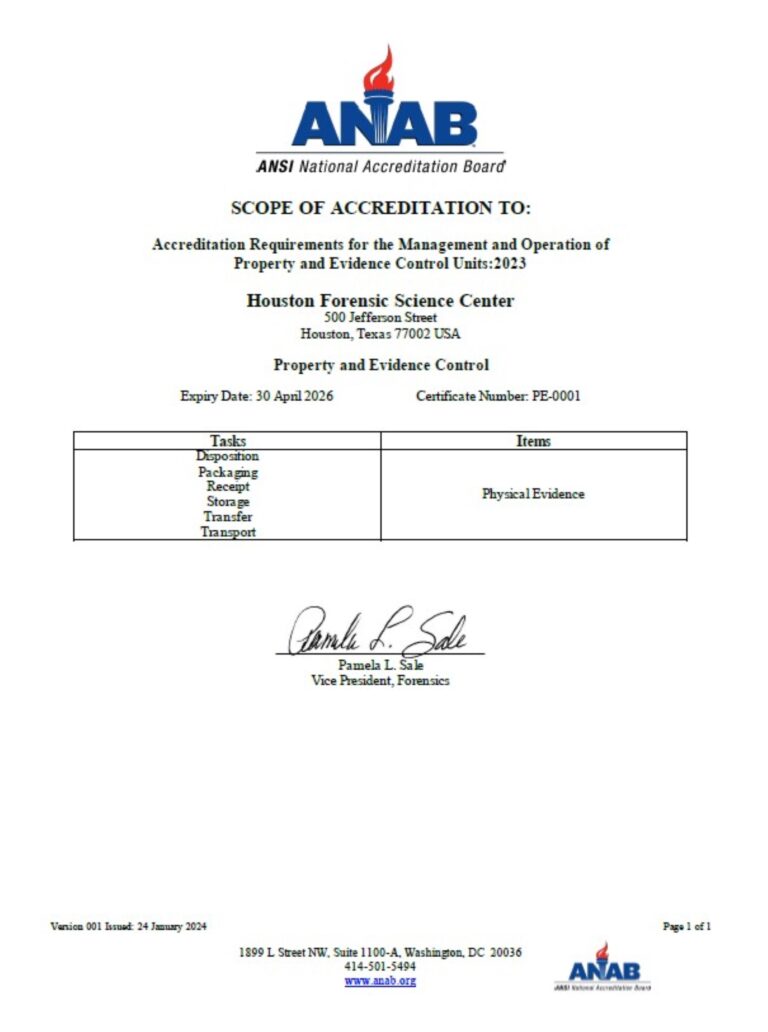
AR 3181
HFSC’s Client Services & Case Management division is accredited to the American National Standards Institute (ANSI) National Accreditation Board’s (ANAB) Property and Evidence Control Units AR 3181 requirements. HFSC is the first organization to obtain this accreditation offered by ANAB.
ANAB established the Management and Operation of Property and Evidence Control Unit Accreditation Program in January 2023. By adhering to these standards, the CS/CM division helps ensure HFSC fulfills our mission and objectives by demonstrating competence in maintaining the integrity of evidence items during receipt, transfer, transport, and disposition of these items.

OSAC
The Houston Forensic Science Center’s board of directors adopted a resolution to voluntarily adopt standards published by the Organization of Scientific Area Committees for Forensic Science (OSAC.)
HFSC’s quality division oversee the implementation of each standard with the goal of making it part of a discipline’s process within a year of publication.
OSAC uses a transparent, consensus-based process that encourages forensic practitioners to participate in the creation of standards. Established in 2014, OSAC has more than 550 members that work in forensic labs and related institutions. Their expertise encompasses 22 disciplines.
